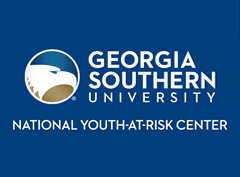No More Scared Straight! Creating Trauma-Sensitive Environments for At-Risk-Youth in Schools Settings
Focused Area
Youth-At-Risk in Urban Settings
Relevance to Focused Area
Professional educators, administrators and counselors know that many students face challenges in their personal lives that adversely affect their learning in school. Unfortunately, many youth in urban communities have been traumatized by directly or vicariously experiencing violence, homelessness, community violence, direct attack, loss (or fear of loss) of loved ones, or other kinds of devastating experiences. This proposal addresses at-risk-youth in urban settings.
Primary Strand
Social & Emotional Skills
Relevance to Primary Strand
This proposal addresses the social and emotional skills of youth. Trauma changes people. Just as a physical assault on the body can cause bodily impairment, psychological trauma can result in a mental injury that impacts such things as a child’s ability to regulate emotions, attend to classroom activities, and/or achieve normal developmental milestones. However, this does not mean that traumatized children and adolescents cannot grow up to be healthy and happy adults, despite the often substantial obstacles they face.
There are ways to make our schools more sensitive to these children’s needs. The school and the classroom can become a “sanctuary” for these children, a place to experience academic success and social acceptance. Through these changes, schools can support all children in the development of healthy coping strategies and resilience in facing future struggles.
Brief Program Description
Exploring various stressors and adverse experience on adolescents, this session will look at trauma’s impact on learning and development, on youth in urban communities and review findings from the Adverse Childhood Experiences study (ACEs) and propose what can be done to create more trauma-sensitive school environments from k-12. Outlining opportunities to increase and expand these efforts, the session will include an interactive discussion about possible next steps.
Summary
There are ways to make our schools more sensitive to these children’s needs. The school and the classroom can become a “sanctuary” for these children/youth, a place to experience academic success and social acceptance. Through these changes, schools can support all children in the development of healthy coping strategies and resilience in facing future struggles.
The “take home” learning objectives are as follows:
1) Participants will learn what is Trauma Informed Care
2) Participants will gain and understanding for how the Trauma-Sensitive Environments can improve academic, social and emotional health
3) Participants will learn how trauma sensitive ignorance relates to youth seeking external unhealthy coping options
4) Participants will also examine stigmas, stereotypes and cultural beliefs about sharing their trauma history
5) Participants will be able to identify and learn ways to change the culture and climate of schools in order to increase trauma sensitive environments.
Evidence
“Trauma Informed Care is a strengths-based framework that is grounded in an understanding of and responsiveness to the impact of trauma…that emphasizes physical, psychological, and emotional safety for both providers and survivors…and, that creates opportunities for survivors to rebuild a sense of control and empowerment.” (Hopper, Bassuk, & Olivet, 2010, pg. 82)
Format
Poster Presentation
Biographical Sketch
Allen Lipscomb is a licensed clinical social worker in the state of California. Allen Lipscomb has two bachelor’s degrees one in psychology and one in black studies from the University of California Santa Barbara. In addition, he also has his master’s degree in social work from the University of Southern California and he is currently working on his doctorate in clinical psychology and will be done in July 2015. Allen is a faculty member at the University of Southern California School of Social Work. He is also an adjunct faculty at California State University Northridge in the College of Social and Behavioral Sciences. He teaches courses in social work and sociology. In addition he has a private practice in Montclair California where he works with children, adolescents, families and couples.
Allen Lipscomb has extensive experience providing mental health and clinical services to children, youth and families in South Los Angeles and the greater Los Angeles area. He has worked in school settings K-12 for the past ten years.
Almease Davis is a Psychiatric Social Worker and currently provides clinical services at Gompers Middle School in Watts California. She is also an adjunct faculty with the University of Southern California in the School of Social Work. She has created and implemented mental health programs within the Los Angeles Unified School District. He earned her masters degree in social work from the University of Southern California.
Start Date
11-5-2015 5:45 PM
End Date
11-5-2015 6:45 PM
Recommended Citation
Lipscomb, Allen and Davis, Almease, "No More Scared Straight! Creating Trauma-Sensitive Environments for At-Risk-Youth in Schools Settings" (2015). National Youth-At-Risk Conference, West (2015-2017). 14.
https://digitalcommons.georgiasouthern.edu/nyar_vegas/2015/poster/14
No More Scared Straight! Creating Trauma-Sensitive Environments for At-Risk-Youth in Schools Settings
Exploring various stressors and adverse experience on adolescents, this session will look at trauma’s impact on learning and development, on youth in urban communities and review findings from the Adverse Childhood Experiences study (ACEs) and propose what can be done to create more trauma-sensitive school environments from k-12. Outlining opportunities to increase and expand these efforts, the session will include an interactive discussion about possible next steps.
